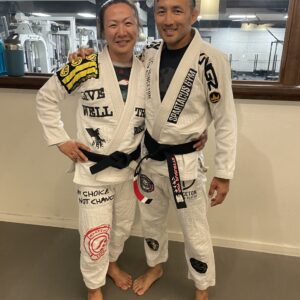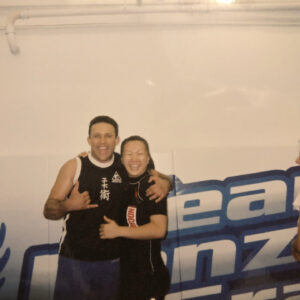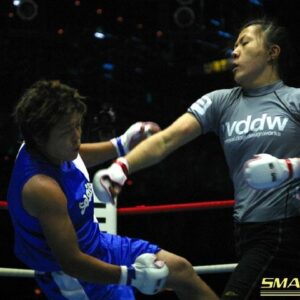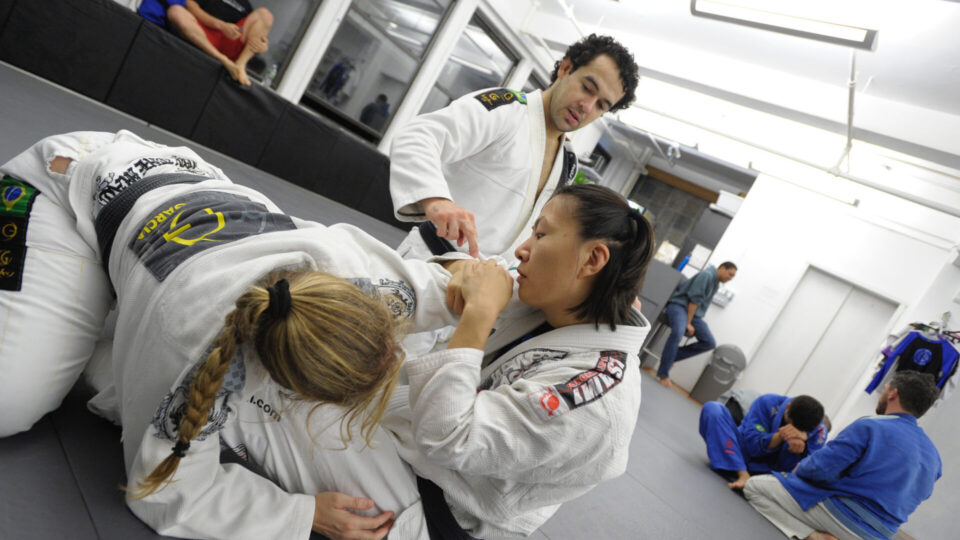PBJJ Blog: Lessons from my Teachers
“I did not fight to win. I fought to discover what was real.” – Yuki Nakai
Over my BJJ career, I’ve had the privilege of being exposed to incredible athletes, coaches and teachers. Looking back, I regret being too young and immature at the time to properly express gratitude for their attention. My teachers have been so vital to my growth. Some of them were and still are -– bigger than life. Others were silent partners or trusted guides throughout my journey. My ethos as a practitioner and teacher stem from the many who invested in me. I wanted to take a moment to share what their presence has taught me as I hope we can continue to share these positive values with you at Princeton BJJ.

Six months into training, I competed at a local tournament at the urging of Roy and my teammates. I was the lightest and most junior competitor in a bracket of three—139 lbs facing a 154 lb blue belt and a 184 lb white belt. I won both matches. I had no idea what I’d accomplished, but Roy pulled me aside, put his hands on my shoulders, and said, “Holy s***. You are going to be a world champion one day.” Never did I ever imagine being world class at anything, but Roy planted a seed that changed my life. He inspired me to believe in the impossible.
In those early days, it was hard to disentangle grappling from Vale Tudo and MMA. Denis Kang (Spirit MC and Pride) was an up and coming MMA fighter and BJJ brownbelt. I was among his first students when he began teaching in the basement of a Muay Thai school called the Golden Lion. Not uncommon for the time, I was the only girl and often one of two students on the mat when he first started his program. Back then, hygiene, interpersonal etiquette and other niceties were pushed aside in favor of a very raw and primal connection to your sport and teammates. The landscape was very tribal and I was terrified of being seen as weak or unwilling. As someone who desperately wanted to get better and be accepted, I suffered a lot to fit in. While chasing after his own dreams as a middleweight fighter, Denis gave me as much attention as anyone. Denis was genuinely funny, kind, and generous. During my years with him I would fight anyone, anywhere, to just have the opportunity to lock up with someone like me. When I couldn’t find females, I was given opportunities to fight men. The courage or stupidity I had in my youth helped me build the tenacity that would serve me in the years to come. Throughout this time, I recall how Denis took me seriously and made me feel like I belonged during a hostile stage of our sport’s development.

In 2004 I found myself in Tokyo teaching English, unable to return to NY on a student visa. I was miserable living in Japan. The culture was not what I expected it to be. Being half Japanese and half Chinese, I had hoped to get in touch with my Japanese roots. Instead, I felt ostracized and outcast. Faraway from home and invisible to other foreign teachers because I blended in with the locals, I felt extremely isolated and unwelcome. BJJ saved my sanity as I threw myself deeply into competition. It was the only place I felt I belonged. I took any fight available—gi, no gi, fighting men when no women were available, and MMA. After dominating several local BJJ events, my friend Kinya Hashimoto suggested I try MMA. I’d always told myself to try anything once, so I accepted.
The teacher who helped me through this time was a man by the name of Takashi Ouchi, a brown belt under Yuki Nakai. Ouchi-san devoted himself tirelessly to his students. Since I taught evening English classes, he created a 10:30-11:30pm class during weeknights for me and three foreign teacher friends. We always rushed to catch the last train home at 12:14am. Ouchi-san followed me to every tournament, hit pads with me, and brought experienced MMA fighters to help me train. Fighting amateur in Japan and pro in Korea, I won both matches representing Team Paraestra. It was one of the hardest years of my life. Ouchi modeled a level of selflessness and bushido few can compare to, providing support when I desperately needed it. I don’t think I could have mentally survived that year without his help.

Today, I continue learning from others and am fortunate to share what I know. As the sport evolves, I reflect on the people and places who made me. As the world turns faster with ever-increasing options, it’s important to pause and remember those who’ve given us pieces of themselves. Where would we be without them? How did they influence our growth?
At Princeton BJJ, we’ve tried to cultivate a community of good humans with perspectives to share. We have diverse representation in age, gender, and pedigree. We value the whole journey, not just one expression of it. I’d like to think we provide a welcoming space for humans to build a practice around self-awareness, discipline, and focus. Without dogma, perhaps we can also provide what my teachers passed down to me: inspiration, belonging, visibility, bushido, friendship, and purity of the art.


